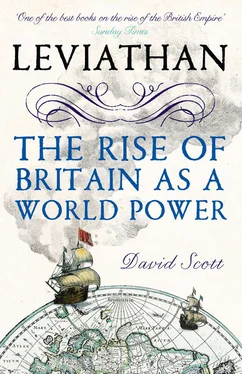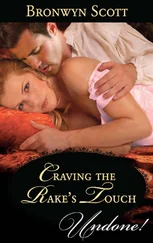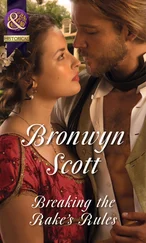Henry VII had been raised on tales of Henry V’s military exploits in France, and he tried, throughout his reign, to identify himself with that greatest of Lancastrian kings. He also appreciated, as Henry V had, that a successful war against France would help to legitimise his dynasty and to purge the ill-humours of unrest and rebellion. Fighting the French bound society together against a common enemy, and allowed unruly elements at home to indulge their desire for loot or chivalric glory abroad. French incursions into Brittany in 1488 gave Henry the perfect excuse for renewing hostilities against them, and between 1489 and 1492 he launched numerous military expeditions to support the Bretons in their struggle to preserve their independence. However, the growing power of the French crown meant that Henry could not wage war against the old enemy single-handedly. He was obliged to negotiate alliances with the Habsburg Archduke Maximilian and Spain’s husband-and-wife monarchs Ferdinand and Isabella, who had their own claims and grievances against the French. Indeed, it was in an effort to detach Henry from this alliance that the French king Charles VIII supported Perkin Warbeck. Likewise, it was because Maximilian believed that Henry had betrayed him in making peace with Charles in 1492 that he too offered his support to the would-be usurper. In truth, the allies had such differing, indeed contradictory, strategic objectives that there was little chance of them mounting a coordinated offensive against the French.
The minimum that Henry hoped from his Breton wars of 1489–92 was to keep the French out of Brittany. It was clearly not in his or England’s interest to allow Charles VIII to annex a territory with so many ports and anchorages that could harbour invasion fleets or pirates who might prey on English shipping in the Channel. Yet policy alone did not dictate that Henry lead his 13,000-strong invasion force – the largest English army that crossed to France during the fifteenth century – in person, as he did in 1492. The terms of his international alliances are also revealing in that they suggest he was at least half-serious about recovering one or more of the French provinces lost at the end of the Hundred Years War. His public pronouncements on the war mingled imperial rhetoric with strategic self-interest, justifying it as an honourable undertaking to assert English claims to ‘the crowne and regally of Fraunce’, and to counter ‘thinsaciable covetise and voluptuous desire’ of the French for their neighbours’ territory. 14If all this were merely grandstanding in order to boost royal revenue and domestic support – as many then and since have argued – it was largely successful in its intended objective. English chauvinism and Francophobia helped to loosen Parliament’s purse-strings, providing Henry with at least £160,000 in taxes between 1488 and 1492. Moreover, despite losing the war and seeing Brittany annexed by the French crown, he nevertheless came away with the consolation prize of a handsome annual pension from Charles VIII. More importantly, however, Henry may have done just enough to convince most of his subjects that the nation’s honour and imperial pretensions were safe in his hands.
Having made an early and plausible showing as a war leader, and put royal finances on a sounder footing, Henry kept his bow unstrung for the rest of his reign. Avoiding another clash with France was made all the easier by Charles VIII’s invasion of Italy in 1494. For the next fifty years or so the thrust of French expansionism was directed mainly southwards, and against Europe’s new superpower, the German and Spanish empire of the Habsburgs. Neither side in this struggle between Valois and Habsburg cared much what was happening across the Channel. England was no longer France’s great rival, merely a potential irritant. From the mid-1490s, therefore, Henry could afford to let matrimony replace warfare as his main method of securing the safety of the Tudor dynasty. In the late 1490s, he negotiated the marriage of his eldest son Arthur to Ferdinand and Isabella’s daughter Katherine (1485–1536); and following Arthur’s death in 1502, Katherine was promptly betrothed to his younger brother Henry. This Anglo-Spanish (and implicitly anti-French) alliance would endure, with varying degrees of warmth, until Elizabeth I’s reign. Henry also agreed – apparently reluctantly, and after a great deal of raiding and marshalling of troops along the Anglo-Scottish border – to the marriage of his eldest daughter Margaret to James IV of Scotland, thereby laying the foundations, if unwittingly, of what would become the union of the English and Scottish crowns under Margaret’s great-grandson James VI and I in 1603.
Although these developments would have profound implications for his subjects, it is unlikely that Henry thought in terms of a national interest independent of his own. He was happy, for example, to promote England’s lucrative cloth trade with the Low Countries, and yet ruthless in cutting it off when dynastic security and his own princely honour demanded. Overall his actions may have done more harm than good to English commerce. Similarly, his patronage of the Italian maritime explorer Zoane Caboto (or John Cabot as the English called him) was probably driven by dynastic rather than commercial concerns. The king had been among the European monarchs approached by Christopher Columbus to sponsor his voyage across the Atlantic in 1492, and but for a series of accidents the riches of the New World might have fallen to the English rather than the Spanish crown. Cabot, by contrast, proved a poor investment. Sailing from Bristol in 1497, he made landfall on the North American coast, and grandiloquently claimed the ‘new isle’ for England. In a second voyage the following year he appears to have sailed down the length of the American coast and into the Caribbean. This was impressive seamanship, certainly, but it yielded nothing for Henry by way of wealth or princely reputation. On the contrary, Cabot may have caused him considerable diplomatic embarrassment with the Spanish, who claimed exclusive dominion over the Caribbean. Cabot died either at sea in 1498 or back in England in 1500 – it is not clear which – and for the next fifty years, while the Conquistadores forged an empire in the Americas, the Tudors’ imperial sights remained fixed firmly on France.
Fighting lords and civil gentlemen
The Breton wars of 1488–92 brought Henry VII money and a certain amount of prestige, and he would need healthy surpluses of both if he were to maintain the necessary distance between himself and his leading subjects for royal authority to function effectively. Ruling England and its outliers meant, above all else, ruling its aristocracy – that is, the nobility and greatest gentry. Lacking a standing army, a police force or a professional bureaucracy, the crown could not govern without these great landowners and their retinues of hundreds – in some cases, thousands – of tenants and retainers. The power and influence enjoyed by the Tudor titular nobility – the peerage – was all the more remarkable given its size. The number of peers – the dukes, marquesses, earls, viscounts and barons who sat in the House of Lords in English Parliaments – hovered around the fifty mark for most of the Tudor period, although contemporaries in England often regarded the heads of the 200 or so greater gentry families as part of the same political elite as the nobility. Below this aristocracy were the lesser esquires and ‘mere gentlemen’, who numbered no more than a few thousand in 1485. Together, the nobility and gentry constituted the Tudor ruling class. They comprised a tiny minority, less than 5 per cent of the population, and yet they owned between a third and a half of the land. Their role and defining characteristics would alter over the course of the early modern period, but land ownership generally remained a sure – though by no means the only – ticket to political power.
Читать дальше












